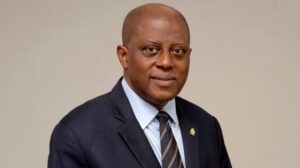
Olayemi Cardoso, the governor of the Central Bank of Nigeria (CBN), has described the decision to raise the Monetary Policy Rate (MPR) to 27.25 percent as a bold move.
According to him, higher interest rates, “while painful for borrowers, are necessary to curb excess money in circulation and control inflation.”
He noted that leadership is about making hard choices to secure long-term stability over short-term comfort “in moments like these.”
Cardoso spoke in Lagos at the weekend while addressing members of the Harvard Club of Nigeria on the topic ‘Leadership in Challenging Times: Restoring Credibility, Building Trust and Containing Inflation.’
He also said the CBN’s decision to implement the Electronic Foreign Exchange Matching System (EFEMS) was rooted in the understanding that trust is essential to central banking.
He said this was to enhance transparency and provide more accurate oversight of foreign exchange transactions.
He said: “Trust is the currency of central banking. If the public loses trust in the institution, the efficacy of its policies diminishes. Our decision to implement the Electronic Foreign Exchange Matching System (EFEMS) is rooted in this understanding.
“By enhancing transparency and providing more accurate oversight of forex transactions, we send a strong signal that the CBN is serious about fair and efficient markets.”
Mr Cardoso, who marks one year in office as CBN governor this week, told his audience that leadership, especially as the head of a central bank, often requires making difficult and sometimes unpopular decisions. He emphasised that the bank is a listening institution, unafraid to reconsider decisions if they fail to meet its original objectives.
“In the face of economic challenges, it is imperative to focus on core objectives—restoring the credibility of the institution, building trust in the financial system, and, most critically, containing inflation. These are not just strategic goals; they are foundational to any meaningful recovery,” he said.
Speaking on his journey on the saddle, Mr Cardoso recalled that upon assumption of duty, he understood that the credibility of the Central Bank of Nigeria (CBN) had to be the bedrock of the actions he and his team took.
“Without credibility, no policy, however well-intentioned, can succeed. Floating the naira, a decision met with considerable public criticism, was necessary to bring the official exchange rate closer to market reality. The disparity between the official and parallel rates had encouraged arbitrage and speculation, eroding trust in the market.
“Credibility is earned by consistency. The decision to close this gap, while painful in the short term, sent a message to market participants that the CBN was committed to transparency and sound monetary policy,” he added, noting that speculative trading had been reduced, and stability was gradually returning to the currency markets.
While noting that containing inflation remained the bank’s core mission, he acknowledged that the CBN was yet to meet its target. However, he stressed that recent declines reported by the National Bureau of Statistics (NBS) in July and August 2024 showed that the CBN was moving in the right direction.





